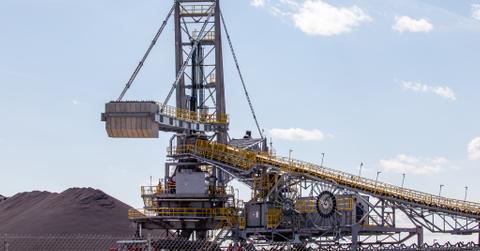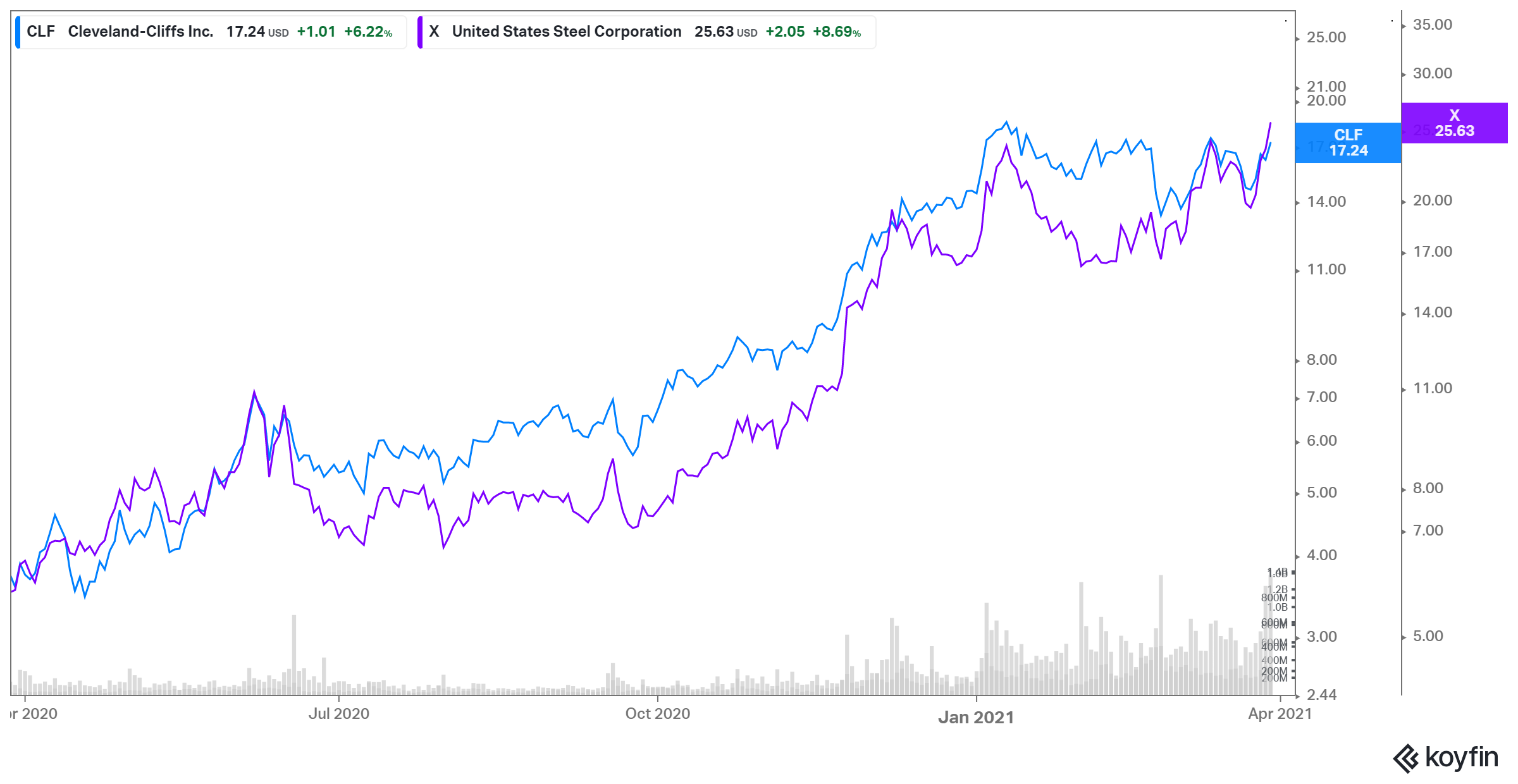Why U.S. Steel and Cleveland-Cliffs Upgraded Their Earnings Guidance
Recently, X and CLF upgraded their earnings guidance due to strong end market demand and rising U.S. steel prices. Is there more upside to these stocks?
March 31 2021, Published 12:36 p.m. ET

U.S steel prices have remained buoyant, which has lifted the stock prices of U.S. steel stocks, including U.S. Steel (X) and Cleveland Cliffs (CLF). Recently, X and CLF both upgraded their earnings guidance, which came in better than analysts’ expectations.
U.S. steel demand has remained strong. End markets have started rebounding during the last few months due to pent-up demand. The unfilled orders in steel are rising, while the inventories are near multi-year lows. This benefits steel players. Is there more upside left in steel prices and steel stocks?
CLF's earnings guidance
On March 30, post-market, Cleveland-Cliffs announced that it will release its results for the first quarter of 2021 on April 22. The company will hold a live broadcast of the conference call on the same day starting at 10:00 am ET. Cleveland-Cliffs made another announcement that was met positively by investors. The company upwardly revised its guidance for the first-quarter and full-year adjusted EBITDA.

Now, Cleveland-Cliffs expects the EBITDA to come in at $500 million, which is nearly 28 percent higher than analysts' consensus. The new EBITDA guidance of $3.5 billion is also 21 percent higher than the consensus estimate. CLF stock traded up by more than 6 percent in after-hours on March 30 due to the updated guidance.
Why U.S. Steel revised its earnings guidance
In addition to CLF, U.S. Steel also revised its earnings guidance previously during the month. On March 15, U.S. Steel upwardly revised its first-quarter guidance. The company recalculated its adjusted net earnings to about $265 million or $1.02 per share. This was significantly up from its previous calculation of $0.61 per share.
U.S. Steel CEO David Burritt, while providing the original guidance on March 12, said, “Strong market conditions and our well-timed acquisition of Big River Steel are allowing us to drive significant earnings growth.”
Morgan Stanley analyst Carlos De Alba said that the first-quarter guidance beat shows significant leverage in U.S. Steel's higher fixed-cost operating base. He also expects the profitability to keep improving in the coming quarters.
CLF's stock forecast
Coming back to CLF, according to Market Beat, six analysts currently cover the stock. Four of these six analysts have a buy rating, while two have a hold rating on the stock. Analysts’ average target price of $14.7 implies a potential upside of 15 percent for the stock.
On March 31, B. Riley Securities raised CLF’s target price from $20 to $21. B. Riley Securities analyst Lucas Pipes increased the target price because CLF’s EBITDA guidance surpassed his estimates. He said that the announcement serves as a "timely reminder that Cliffs is ideally-positioned to benefit from stronger domestic steel and metallics prices.”

Is CLF a good stock to buy?
Currently, U.S. steel prices are rising due to lockdowns lifting and higher steel demand. The stimulus aid provided by the government is expected to support the demand for steel in the economy. U.S. steel companies have noted strong customer demand across most end markets, low inventories, and pent-up infrastructure demand. These factors are expected to keep U.S. steel prices buoyant for months before the new capacity additions hit the market. In the meantime, CLF and even U.S. Steel should keep benefitting from the favorable trends.
CLF has transformed into the largest integrated steel manufacturer from being the largest U.S. pellet producer. There isn't any doubt about the company's execution and management. CLF's management has pulled it away from the claws of bankruptcy back in 2014. As macroeconomic trends favor it, the company should keep benefiting, which would lead to a higher top and bottom line. This should boost CLF's stock price. Even after an 18 percent rise YTD, there's significant upside potential in the stock in the long run.
